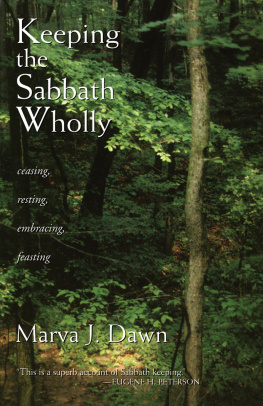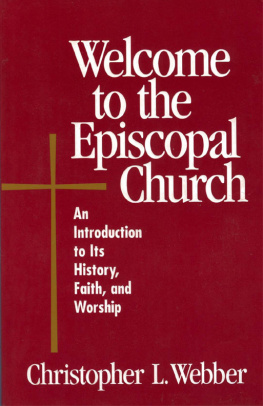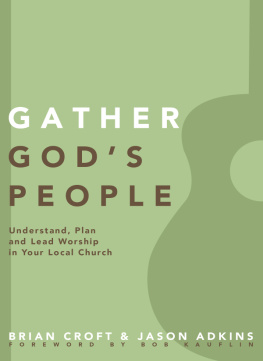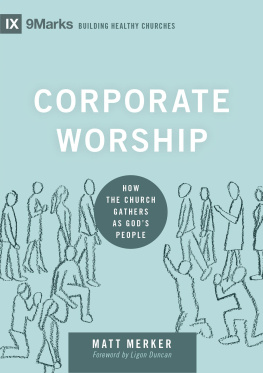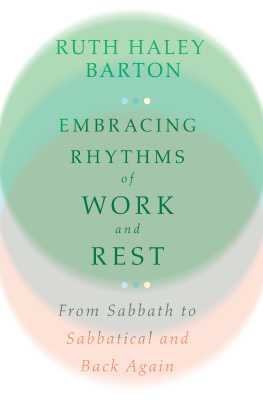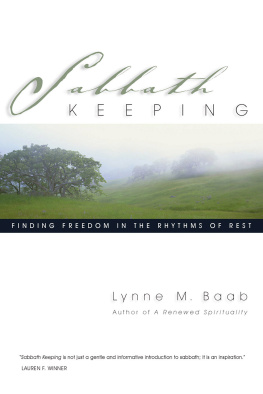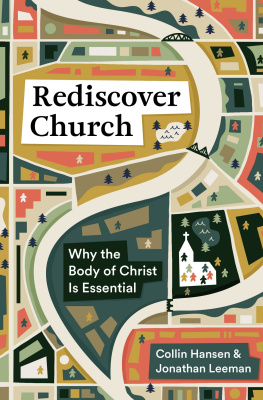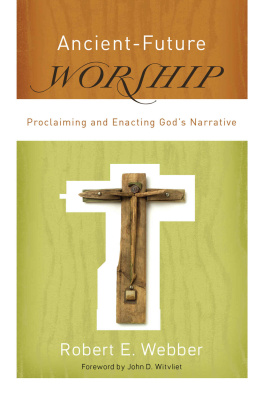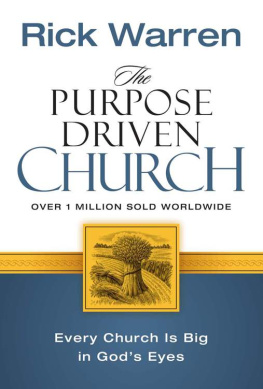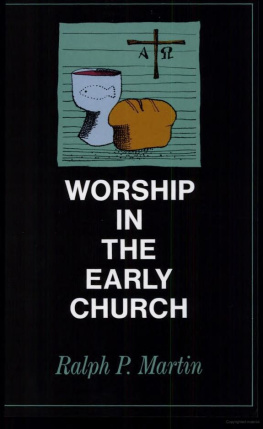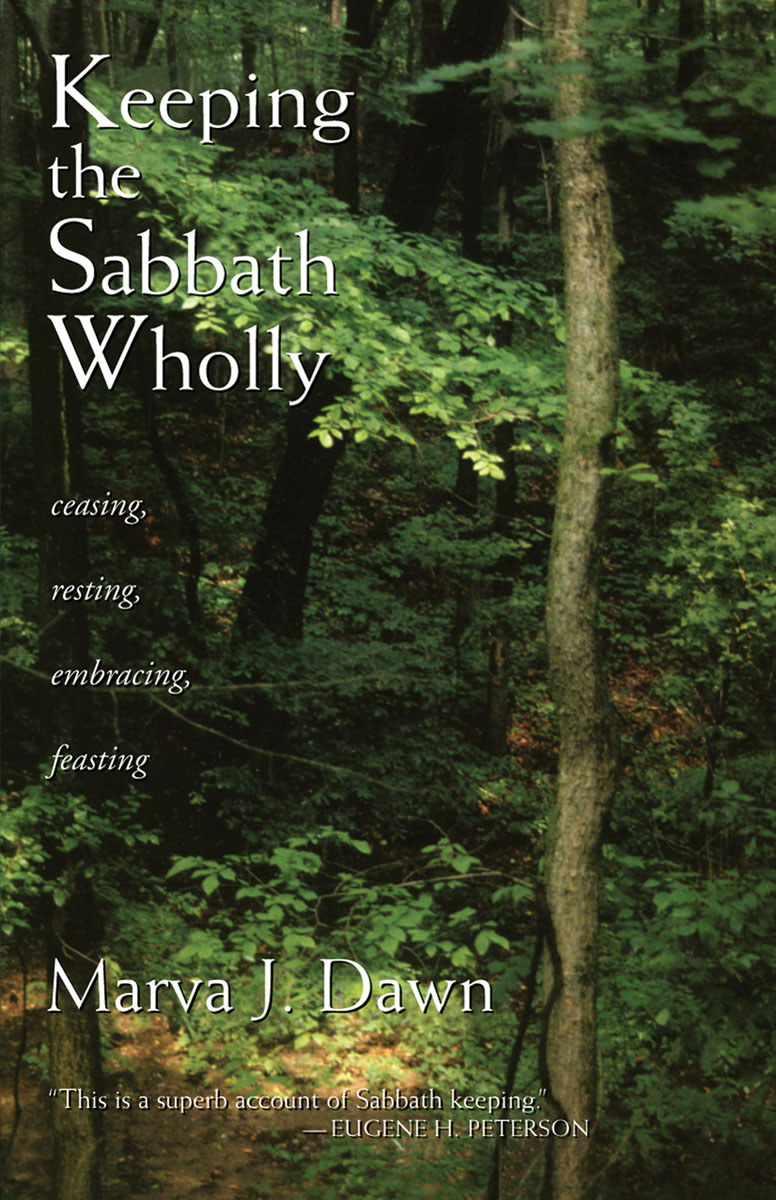

Wm. B. Eerdmans Publishing Co.
2140 Oak Industrial Drive NE, Grand Rapids, Michigan 49505
www.eerdmans.com
1989 Wm. B. Eerdmans Publishing Co.
All rights reserved
Published 1989
Printed in the United States of America
26 25 24 23 22 21 20 19 18 23 24 25 26 27 28 29 30 31
ISBN 978-0-8028-0457-0
Unless otherwise noted, all Scripture quotations in this publication are from the Holy Bible, New International Version. Copyright 1973, 1978, International Bible Society. Used by permission of Zondervan Bible Publishers.
We gratefully acknowledge permission to quote material from the following publications:
Excerpts from My Mothers Sabbath Days by Chaim Grade. Copyright 1986 by the Estate of Chaim Grade. Reprinted by permission of Alfred A. Knopf, Inc.
Excerpts from The Sabbath by Abraham Joshua Heschel. Copyright 1951 by Abraham Joshua Heschel. Copyright renewed 1979 by Sylvia Heschel. Reprinted by permission of Farrar, Straus & Giroux, Inc.
DEDICATION
This book is dedicated to all the people who need the Sabbath
the busiest, who need to work from a cohesive, unfragmented self;
social activists, who need a cycle of worship and action;
those who chase after fulfillment and need to understand their deepest yearnings and to hear the silence;
those who have lost their ability to play because of the materialism and technologization of our society, who need beauty and gaiety and delight;
those who have lost their passion and need to get in touch with feelings;
those who are alone and need emotional nourishment;
those who live in community and need solitude;
those who cannot find their lifes priorities and need a new perspective;
those who think the future is dictated by the present, who need hope and visions of the future to change the present order;
those who long for deeper family life and want to nurture certain values;
the poor and the oppressed, who need to mourn and to dance in the prison camp;
the rich and the oppressors, who need to learn nonviolence, stewardship, and Gods purposes in the world;
those who suffer, who need to learn how suffering can be redemptive;
professional theologians, who need to bring the heart back into theology;
those who dont know how religion fits into the modern world, who need a relationship with God;
those who are disgusted with dry, empty, formalistic worship and want to love and adore God;
those who want to be Gods instruments, enabled and empowered by the Spirit to be world changers and Sabbath healers.
Contents
Preface
B UT , M OMMY , I dont wanna go to church!
How often I have heard that plaintive cryand not only from the young! What a sad commentary it is on North American spirituality that the delight of keeping the Sabbath day has degenerated into the routine and drudgeryeven the downright oppressivenessof going to church.
This phrase is both negative and limiting. In the first place, how we talk affects how we live. To say I am going to church both reveals and promotes bad theology. In the earliest days of Christianity, the church was a living and vibrant gathering of Gods people, who met together to be strengthened and then went out into the world to manifest the gospel in their actions and their very beings. Now the church has become a static place, to which believers go for tired and tiring rituals. We are NOT going to church! We are going to a sanctuary to participate in an order of worship together with other people of God gathered in community, to be nourished by all that we do there together so that we can go out into the world and be church.
In the second place, the act of worship is only one small part (though an essential one) of the whole meaning of Sabbath keeping. To keep the Sabbath holy means to recognize that the rhythm of six days of work and one day of ceasing work is written into the very core of our beings. To observe that order week by week creates in us a wholeness that is possible only when we live in accordance with this pattern of being graciously commanded by God.
I will not enter into the debate about whether the Sabbath should be observed on Saturday, the true seventh day of Jewish custom, or on Sunday, set apart by the earliest Christians as the Lords Day. There are many reasons for emphasizing either choice. It has worked best for my own understanding of my faith to observe a Sabbath day (thus thankfully appreciating the roots of my faith in the insights, practices, and disciplines of the Hebrew people and responding to the commandment to keep the Sabbath holy), but to practice my Sabbath customs on Sunday (to recognize the Resurrection as the decisive event for Christian faith and life). Most of the suggestions in this book can be applicable to either Saturday or Sunday celebrations. The important thing is that a particular day is set aside as the Sabbath, and that it is observed faithfully every seven days so that God can imbue us with his rhythm of six days of work and one day of ceasing work.
This book will sketch many of the results of Sabbath keepingthe effects of our ceasing, resting, embracing, and feasting. The observance of such an ordering of our days preserves more wholistically the fabric of our existence. Truly, the wholeness of being the people of God is desperately needed in our lopsided and fragmented age and ardently desired by those who profess that faith in God makes a difference in ones lifestyle.
Many of the points of this book are related to ones daily disciplines of devotional life, because many of the things that I write about are the results of our consistent practices for growing in our relationship with God. However, contemporary Christians and Jews need to remember and celebrate again that God himself deliberately established the rhythm of six days of work and one day of ceasing work in order that this relationship could reach greater depth.
It disturbs me that so many of the books and articles describing the disciplines of the spiritual life contain no mention whatsoever of observing the Sabbath. We find exhortations to practice celebration, chastity, confession and absolution, fasting, fellowship, frugality, meditation, mutuality, prayer, service, silence, simplicity, solitude, study, submission, tithing, and worship. All of these are valuable, and most of them are related to Sabbath keeping. However, the particular discipline of remembering the Sabbath is specifically inculcated in the ten covenant commandments of Yahweh.
In The Table of Inwardness, Calvin Miller stresses that intimacy with God cannot be rushed, that we cannot enjoy the presence of God if we are always looking at our watches. That is why keeping the Sabbath is so importantbecause on that day we never wear our watches at all. Except for attending certain specific hours of worship and Bible class, we have the whole day long to move as the Spirit leads us.
Many of you are probably saying by now, But thats impossible! I cant get through an entire day without wearing my watch. I have too much to do. That is the very reason you need this book. I can promise you that if you develop a lifestyle in which you spend one day as a Sabbath day without wearing a watch, you will be more able to accomplish all that you have to do on the days that you wear one.
Next page
